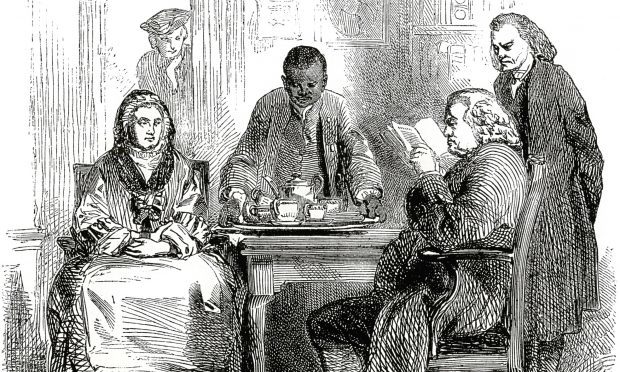Patriotism is the last refuge of the scoundrel. What Samuel Johnson can’t have known when saying that was just how busy a refuge it would become.
A sense of patriotism infused the Brexit campaign – where once military recruitment worked on the slogan “your country needs you”, the Leave campaign went for the modern equivalent: the NHS needs you.
Brexit, like so much in modern politics, was sold on the premise of helping the NHS to the tune of £350 million a week (money which would no longer be sent to Brussels). The NHS is still at play but not because people genuinely wish to save it, just because they can’t think of another reason why Brexit might be good.
Figuring out the Brexit bonus is tripping up UK politics – less a case of what did the Romans ever do for us, than what will we do for ourselves.
This is what sits at the heart of Ukip’s crisis, though you’d be forgiven for thinking the male middle-aged crisis is to blame. The party is in pieces over a leader who is sleeping with a racist woman half his age and rivals who wish they were in charge. UKIP is irrelevant not simply because it got and won a referendum, but because it has so little to say on what this victory means. The patriots got their nation back, and have little idea what to with it.
The same anxiety pulses through the Tories. Boris Johnson wants it to be known that the NHS should get more money – £5 billion more. Theresa May slapped down his mutinous cry at Cabinet on Tuesday, only not sacking him for breaching collective responsibility because he’d like nothing more than to be seen as a martyr for Brexit.
Mr Johnson was notably absent from the House of Commons at Prime Ministers Questions yesterday, while Jeremy Corbyn led on the question: “Do you agree with the Foreign Secretary that the NHS needs £5bn?”
Mrs May didn’t agree, as, she said, she’d already given it £6 billion. Mr Corbyn hinted he’d give even more but didn’t explain how. It appears that everyone wants to shower the NHS with cash. They don’t.
Mr Corbyn can be taken at face value as wanting to give the NHS lots, but Mrs May is right to say Tory plans and Labour ones at the last election were pretty much the same.
As for Boris Johnson, his NHS talk has a lot more to do with his own career.
The internal Tory fuss about the NHS is strategic repositioning by the Brexit wing of the party.
The Brexit negotiations appear to have settled on a departure bill of around £50bn. Brexit fans are fond of saying that a one-off £50 billion is pennies compared to the annual amounts sent to Brussels. In fact, its about five years-worth of contributions.
What that ignores is the likely fee for continued access to parts of the EU.
Downing Street has said there will no fees paid for access to the single market but has also said it wants a bespoke deal, and reacted warmly when French President Emmanuel Macron said last week that a “special” deal could be done. I interpret the signals to mean that Mrs May does want to keep access to the single market.
She can achieve this much as Norway does – Oslo doesn’t pay for access to the EU market but it does pay over the top for EU redistribution programmes.
The Norwegians cough up around 400 million Euro a year in order to help our poorer EU nations. It so happens that it also gets access to the single market.
What Boris Johnson suspects is that a similar deal will see the UK still paying Brussels – and presumably a figure far higher than the relatively small economy of Norway.
We can expect to add around £5 billion per annum along with the one-off cost of £50bn (a guess, but so much is when it comes to Brexit details).
Boris Johnson is virtue signalling a love for the NHS, which he fully expects will be thwarted by Mrs May’s soft Brexit deal. He wants to stand in front of the cameras and say words to the effect: if I had been in charge, the NHS would have been saved, but Mrs May has sold the NHS down the river in her soft Brexit.
In fact, what he is demonstrating is the total absence of clear plan by Brexiters for what the UK will do, or be like, after we leave the EU.
Where we could have had a prospectus for what Britain could do with newly repatriated powers, or a clear-headed analysis of the costs and benefits of new trade deals versus old obligations, we are offered waffle about the health service.
Patriotism may be the last refuge of the scoundrel but in modern politics, the NHS is a jolly close second.
